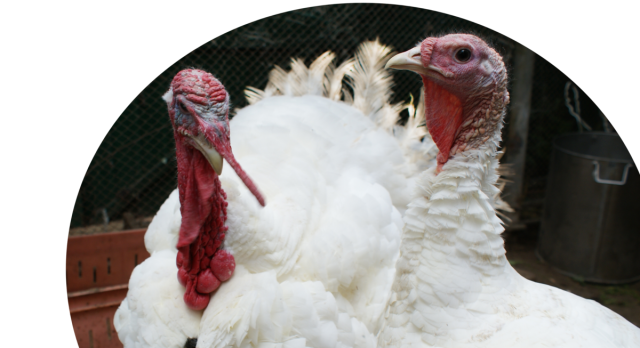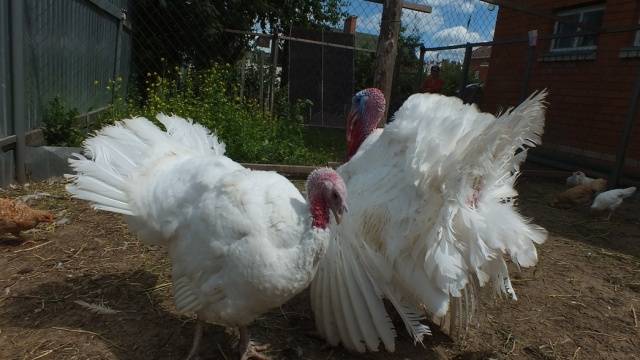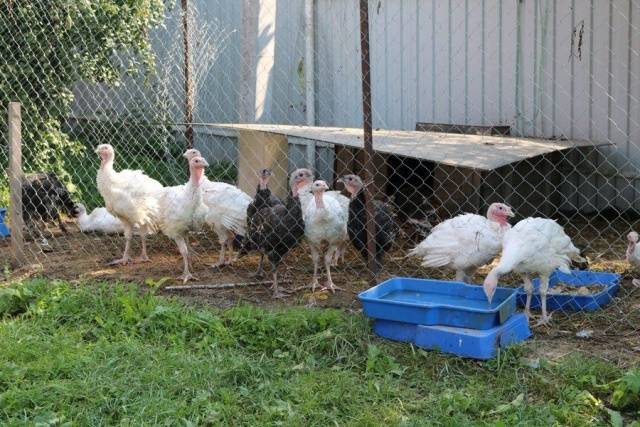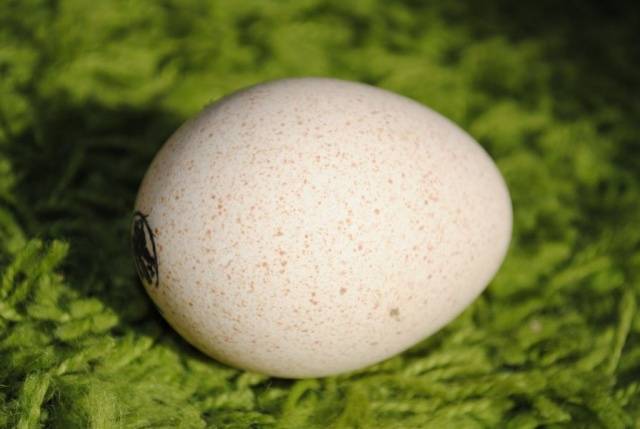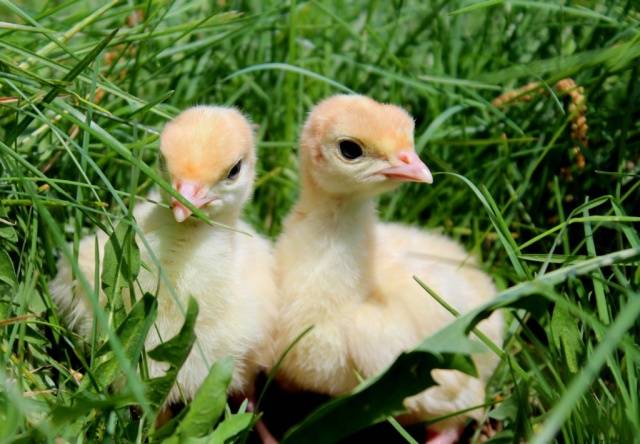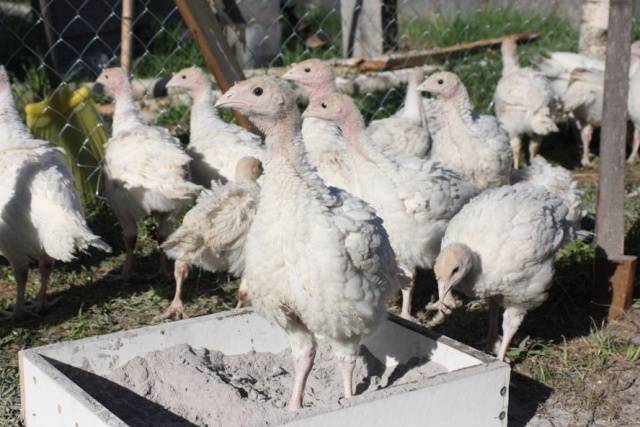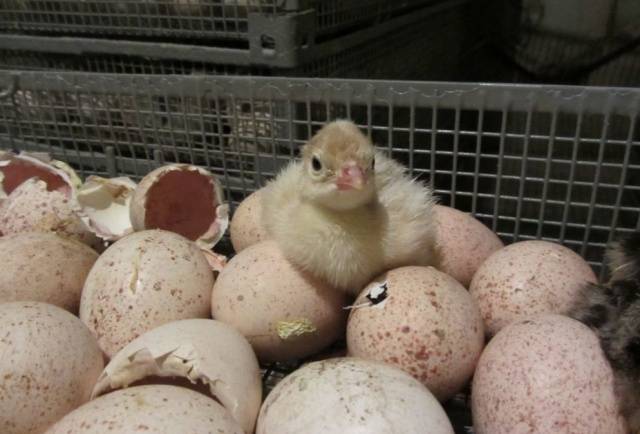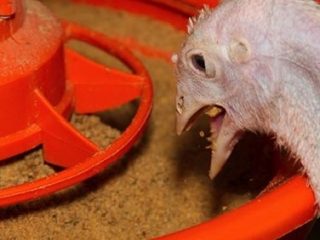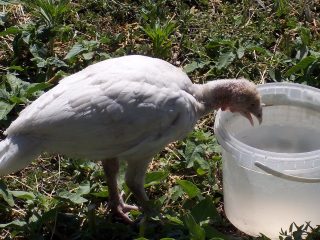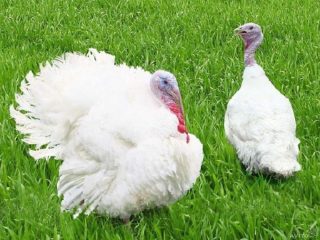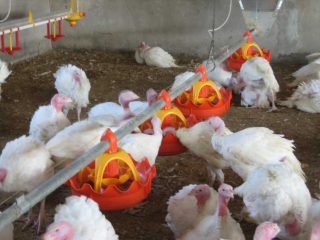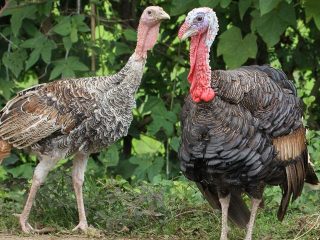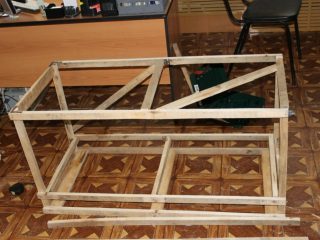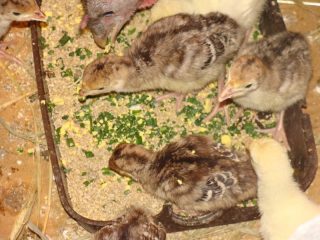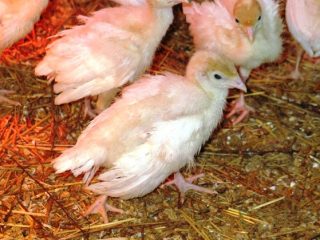Content
The Grade Maker is a Canadian medium cross of a wide-breasted white turkey. Great for indoor cultivation. In Europe, this turkey is called "festive". Not very many farmers are engaged in breeding this cross in Russia, however, Grade Maker gradually begins to gain popularity. This is not surprising, because these turkeys have a lot of positive qualities.
Benefits of Cross Grade Maker
- turkeys have a quick maturity: at 10-12 weeks they weigh at least 4 kg;
- Grade Maker turkeys have high endurance, their development is very active;
- birds have good stress tolerance;
- turkeys of this cross have a good immune system, therefore, high resistance to diseases;
- at breeding turkeys Grade Maker quickly pays off costs;
- the carcasses of this cross have a beautiful presentation.
Features of the Cross Grade Maker
Turkeys have large breasts and fluffy plumage. Males reach a weight of 18-20 kg by 4.5 months, females gain 10 kg in 126 days.
The photo shows the parameters of the Grade Maker turkey
Females produce 80 to 100 eggs per reproductive period (on average, 12 eggs weighing 85 g per month). Egg hatchability is 87%
Conditions of keeping the Cross Grade Maker
Since Grade Maker turkeys are thermophilic, they need to provide a dry and warm room in which they will be located. It is necessary that there is sufficient lighting, but there should be no windows in the room.
The turkeys should have a place where they can clean: a box with a mixture of ash and sand - this avoids the appearance of parasites.
Turkeys sleep on perches. Considering the large weight of the birds, the timber must be of appropriate thickness. Each bird should have at least 40 cm of space. The height of the perch should be 80 cm, the width between the places should be at least 60 cm.
To prevent obesity, birds need long (at least an hour) walks, so you need to equip a spacious place for walking. It must be fenced off with a high fence, because the representatives of this cross can take off quite high. Or you can clip the wings of turkey poults.
How it looks in practice - look at the video.
Turkeys have a rather quarrelsome character, during fights they can seriously injure each other. Therefore, no more than 5 males and 40 females should be kept in one place.
For good egg production of females, it is necessary to correctly equip her with a place. The average height of the nest should be 15 cm, width and height 60 cm. This size is suitable for 4-6 females. Hens are very caring: they can provide supervision for a large number of chicks - up to 80 pieces.
Organization of feeding turkeys of the Cross Grade Maker
You need to feed the birds at least 3 times a day, during the reproduction period - up to 5. Type of food - combined, consisting of wet and dry mash. The diet must include grain feed: sprouted and dry. In the morning and in the afternoon, it is best to give wet mash, in the evening feeding - dry grain. During the season, turkeys should receive plenty of greens. In winter, you need to introduce vitamin supplements: beets, carrots, cabbage.
Care for turkey poults of the Cross Grade Maker
Turkey poults of the Grade Maker cross are quite unpretentious and hardy.At first, they need round-the-clock lighting and a temperature of at least +36 degrees. The temperature should be measured ten centimeters from the floor.
It takes 8 times a day to feed the chicks at this time. First, they give a mixture of their boiled eggs and small cereals. From 1 month, finely chopped greens (alfalfa, nettle or cabbage) are added to the mixture. There are special compound feeds for young animals on sale. Initially, turkey poults have soft beaks that can easily be cut on the surface of the feeder. To avoid injury, you need to use silicone, rubber or cloth feeders.
When choosing a drinker, you should give preference to one that is safe for chicks: so that the turkey cannot fall into it, get wet and get cold. For newborns, the water temperature should be 25 degrees Celsius, for older turkeys - correspond to the air temperature in the room. The drinker and the feeder should be located in a place where they will be clearly visible to babies, since at first the chicks have poor eyesight. For the same reason, bright foods are added to the feed: colored cereals, yolk.
To prevent infectious diseases, turkey poultry litter should be clean and dry: cleaning should be done daily, flooring should be completely changed - weekly.
Sunlight and fresh air are very important for the health of babies. If turkey poults grow under the supervision of a female, they can be released for walks from two weeks of age, if alone - upon reaching 9 weeks of age.
Conclusion
Grade Maker turkeys are ideal for novice breeders: with good early maturity and egg production, the birds are quite unpretentious in care and feeding. The costs invested in turkeys pay off quickly enough, and the meat and eggs are tasty, healthy and easily digestible.
